Everyone Needs Someone Who Cares: Adrien Lewis & Cara Finger
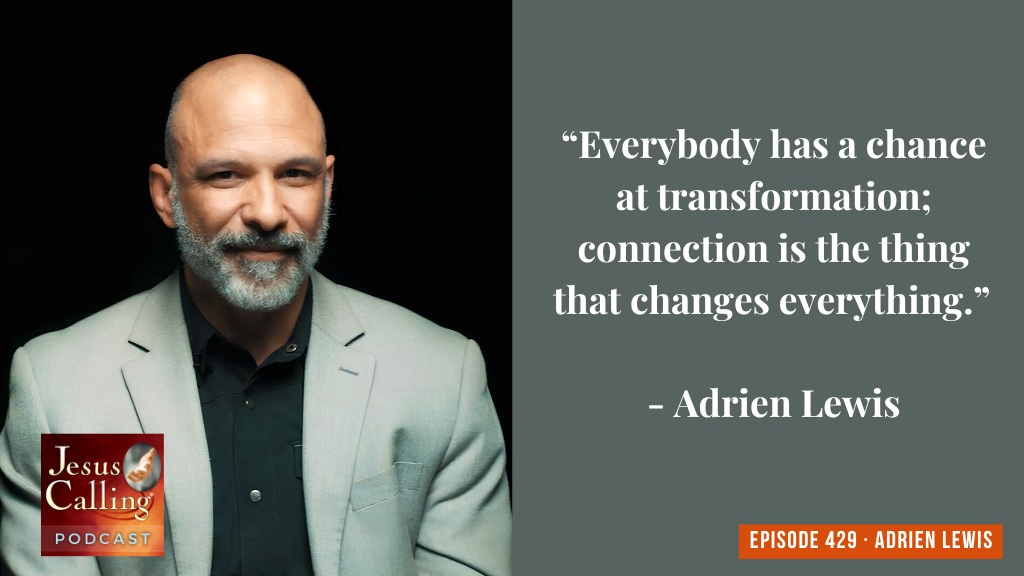
Adrien Lewis: We all have the opportunity to see and serve our neighbors, to love people like we love ourselves. And the question really is, What’s in my hands? What’s in my heart? What’s in my face? Where is the opportunity? The worst thing we can do is get frozen because we can’t do everything. The best thing we can do is start with what we have and serve the person that’s closest to us.
Everyone Needs Someone Who Cares: Adrien Lewis & Cara Finger – Episode #429
Narrator: Welcome to the Jesus Calling Podcast. This week, we explore how two individuals answered the call to serve those in need, and how their actions have sparked movements of care and compassion that are changing lives one small step at a time.
We’ll hear from Adrien Lewis, a devoted husband, father, and founder of CarePortal, an innovative platform that connects churches and communities to families in need. Adrien shares how a mission trip to Haiti transformed his life, shifting his perspective and leading him to put his faith into action.
Later in the episode, we’ll hear from Cara Finger, a foster and adoptive mom who—after witnessing children in foster care carry their belongings in trash bags—felt compelled to create My Bag My Story. This ministry provides quality bags for these children, giving them dignity and a sense of belonging during their most challenging transitions.
Let’s begin with Adrien’s story.
Adrien Lewis: My name is Adrien Lewis. I love Jesus. I am married to an amazing woman, Cynthia. We have six kids, three we adopted through foster care and three biological ones. I live in Kansas City. I have the blessing of being in the business world for almost half my career, and the last half of my career I’ve been in the ministry world using my gifts and talents in a full time way to really help the church be the church, and see and serve the most vulnerable neighbors.
Going From Believers to Followers
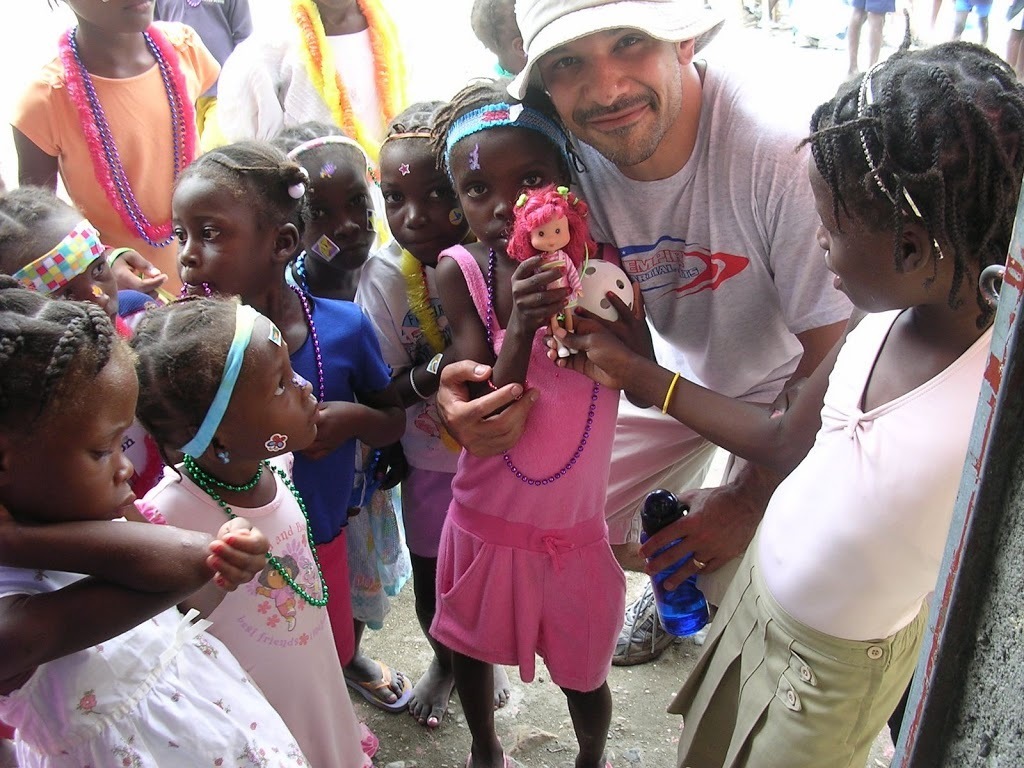
My life really took a turn when I got invited to go to Haiti by a friend. I was probably thirty-two years old, something like that. I had only been a believer for a short time, and he asked me to take a mission trip with him to go see some vulnerable kids in Haiti. So my wife and I said yes to that, and we went in January of 2007.
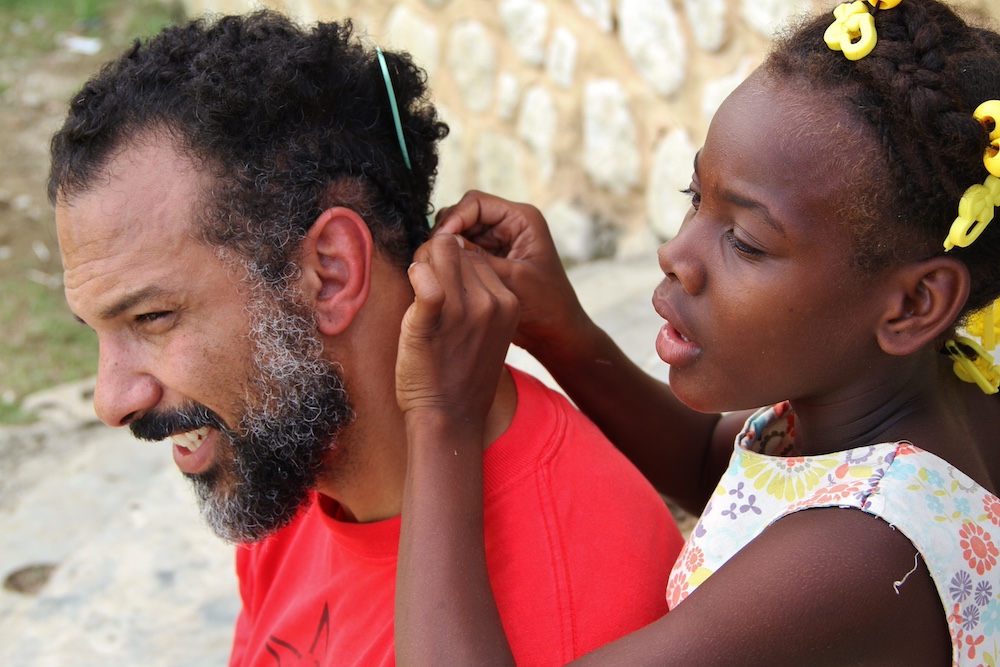
I remember lots of things from that first trip. But the most pivotal moment was one day we were walking on a field that was surrounded by mountains and it was beautiful and desolate at the same time. It seemed full of opportunity and also full of poverty. And so just the mix of those things kind of shook me out of my norm a bit, I guess you’d say. My wife and I are holding hands, walking. And we have this special moment where I can say we went from being believers to being followers. I think God just gave us a bigger vision for our lives, a bigger purpose than we had before. We started to think about ourselves and what we could be part of to change the world, and how much that mattered to us, how much we wanted that, and how much we knew that Jesus wanted that for us.
“I think God just gave us a bigger vision for our lives, a bigger purpose than we had before. We started to think about ourselves and what we could be part of to change the world, and how much that mattered to us, how much we wanted that, and how much we knew that Jesus wanted that for us.” – Adrien Lewis
And it led us to make some radical decisions in our life. We came home from that trip and my wife quit her job and became a stay at home mom. Sometime later, I got a phone call to leave my company to join the ministry. So I go tell my wife, “Hey, babe, I think we’re supposed to leave my company and join this ministry.” And this amazing woman said, “That sounds like God to me.” Here I am fourteen years later, and I am not the man I used to be. And I’m so thankful for that.
Answering a Call for Help
On this journey with the Global Orphan Project, I found myself in Uganda behind a pastor’s house in this little hut. It’s sometime in 2010, and we are there because our mission was to break the orphan cycle through working with local churches in third world countries who loved and served kids who were the most vulnerable. And so we’re there trying to help them and establish some infrastructure and some resources and all the things. And I’m in this hut behind this pastor’s house and just out of nowhere, I get this really clear sentence that runs through my head: “Take the foster care class.” I’d never thought about this before. And so I text my wife and we start thinking about this and praying about it. And time goes by and we both get to a place where we feel like, actually, this is what God wants us to do. And so we did, we started taking the foster care class.
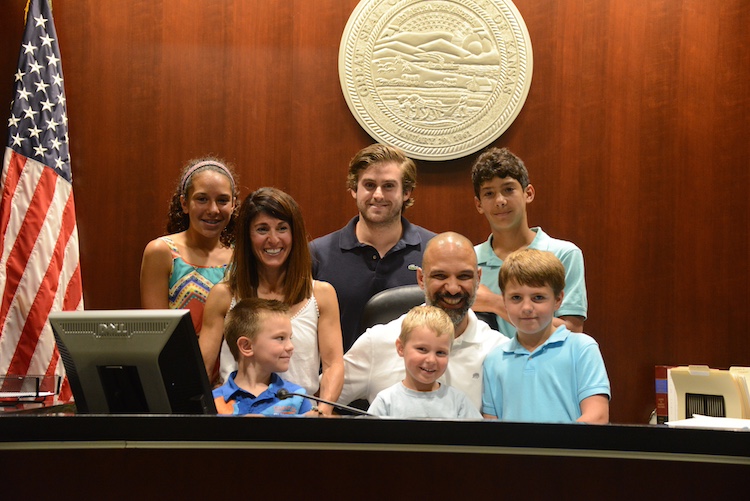
And the very first phone call that my wife and I got when we were licensed foster parents, we’re driving down a road together, at like 3:00 in the afternoon, and we get this phone call from the caseworker. And the caseworker says that she has two boys, ages four and two years old, sitting in her office. Their parental rights are already terminated. They’re not going back home, and their adoptive placement just blew up. They literally have nowhere to go. And she says to my wife, “Will you take them?” We’re basically being asked, “Will you adopt these two boys?” Permanency is what they needed. So we hung up the phone. We’re driving down the road, catching our breath. And we pray. And after a moment or two, my wife says, “I just got some of God’s Word in my head, scripture just came to me: Matthew 25:40. Jesus says, ‘Whatever you do for the least of these, you do for me.’” We knew instantly that our answer was yes. And that yes changed our life. And that yes planted a seed inside of us for what it looked like to follow Jesus, what it looked like to see your neighbor and come alongside them and what that meant.
The Jesus Calling series has been so meaningful to my family. It started with a neighbor of ours actually walking the dog. We’ve seen him a half a dozen times. And one day, he just shows up at our house and he’s got this Jesus Calling book in his hand. And he’s like, “I give this to people because a few years ago, I was in a hard place and someone gave one to me. And so now I just give it to people and it’s changed my life.” And I’m so grateful for the way that this is written for the everyday person to not just know about Jesus, but to experience Him in a personal way. And the fact that there’s a version for our kids that we’re able to do the same thing with is just beautiful. It’s been impactful for them, and I just couldn’t be more grateful for the simple, beautiful, accurate, imaginative telling of Jesus in the everyday life.
Finding Better Ways to Fill the Need
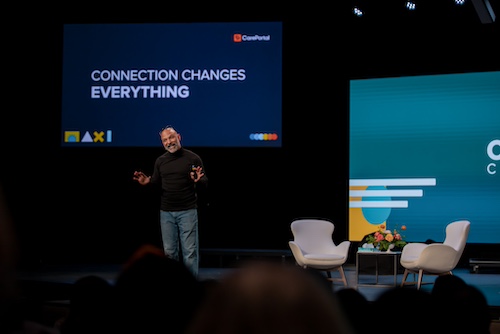
And after my wife and I started on this journey of fostering ourselves, our organization also felt like we were supposed to stop flying over the kids in our own backyard. Not to stop caring for kids through churches around the world, but to also do it in our hometown and other towns in the United States.
And so we started asking churches to look into this crisis of the orphan in our city. And in Kansas City, where I’m from, at that time, there were 773 kids who needed to be adopted currently in the foster care system. And we went to church after church after church saying, “Pastors, just tell your congregations to take these kids in.” And unfortunately it met deaf ears to a large degree. We failed for two years straight trying to get churches to accept this call. And we realized over that period of time that there was really this high, like, six foot barrier to bring kids into your home. For a pastor to stand up in their congregation and say, “We should do this,” it was a scary, scary thing and I get why they were hesitant. And so while we went through the two years of failing and learning, we made some relationships.
And one day, two years into this, I’m sitting at my desk reading a document. The document was a summary of what we had been through the last two years. And man, I kid you not, in a flash, just in a moment I wasn’t expecting, I get this clear vision on how to connect kids and families in crisis in real time with churches and people in the community right by them who could help. And using technology to do that in a real way, in a fast way, in an effective way. It was like, Oh my goodness, if people only knew that they could come alongside a single mom who had just left an abusive relationship, and she doesn’t need you to adopt her kids, what she needs is some beds so that she can safely bring her kids back home because child welfare is not going to allow her kids to come back home unless she has these beds. And if we could get that message out to people in that community and just let them know, hey, would you receive an email when something like this happens? And if you can help, would you do it? And all of a sudden this crazy six foot barrier turns into a six inch barrier and you go from having one percent of people interested to having twenty-five percent of people. I mean, people would just do it if they just knew. “Of course I’d get that mom some beds! Of course I would.”
What Can Happen When We Show Up For Others
In 2015, we launched CarePortal in a couple of different cities. And since then we’ve improved the technology. God has blessed the heck out of it. There’s nearly 5,000 churches in the CarePortal platform over thirty-five states, and nearly 300,000 kids have been seen and served through local churches and communities across this country. This little technology that God gave us a vision for just opened the doorway to awareness that leads to action. And we think there’s a day coming when care sharing will be as ubiquitous as ride sharing. People in every city will know what it is. A care sharing platform for a church will be just as important as a worship team so that they can see and serve their neighbors in really important ways. And that’s what we’re after.
So there’s this young girl, her name is Mekeisha. She’s seventeen years old, in foster care, and pregnant. She’s about to age out of foster care. That means that she’s leaving the family that she’s with. And Mekeisha has nothing. And when I say nothing, I mean she’s got no stuff, she’s got no family. All Mekeisha has is a caseworker who’s trying to do her best for Makeisha. And her caseworker has CarePortal. So the caseworker goes to CarePortal on her phone, and she types in, “I have a seventeen year old girl who’s pregnant and alone. She needs a crib to keep her baby safe. Anything you can do to help would be appreciated.” Submit. That request goes out to dozens of churches in proximity. And this one church, they get this request, and at that church, the Denbow family, they see it and they’re like, Oh my goodness, we could do this. So they respond and then the caseworker gets permission from Mekeisha for everybody to get together. And the Denbows show up at Mekeisha’s house with this crib. And while they’re in our house, they’re setting it up, they’re talking to her, and they just become overwhelmed with this thought. Mekeisha needs more than a crib, and we can do more. And so they do. They throw Mekeisha a baby shower. They start taking her to driver’s ed. They start taking her to church with them. The Denbows treated Mekeisha like family. And through that radical act of kindness and love, Mekeisha’s life was forever transformed. Her baby did not go into foster care. That legacy has been changed. Now Mekeisha has given her life to the Lord, and she’s married and in full time ministry, serving young people just like her who are aging out of the foster care system. This is not just a story of a crib. This is a story of what can happen when a caring neighbor, motivated by love, shows up and sees someone else in the midst of their crisis and knows that they can do something, and they do. And now Mekeisha’s life is different, and so are her kids, and so are the Denbows. Everybody has a chance at transformation. And connection is the thing that changes everything.
“Everybody has a chance at transformation. And connection is the thing that changes everything.” – Adrien Lewis
Jesus Listens, August 6th:
Dearest Jesus,
Thank You that I am safe, secure, and complete in You. Help me to stop my anxious striving and just come to You with the matters that are on my heart. I need to trust You enough to be open and honest as I tell You about the concerns weighing me down. I can give all my worries and cares to You, for You care about me— You are taking care of me! I find rest in the shelter of Your Presence.
When You are the Center of my life, I’m able to live meaningfully, according to Your will.
O Lord, in Your Presence I am indeed safe, secure, and complete!
In Your victorious Name,
Amen
Narrator: To learn more about Adrien Lewis and Care Portal, visit www.careportal.org.
Stay tuned to Cara Finger’s story after a brief message.
Available Now: The Jesus Calling Commemorative Edition
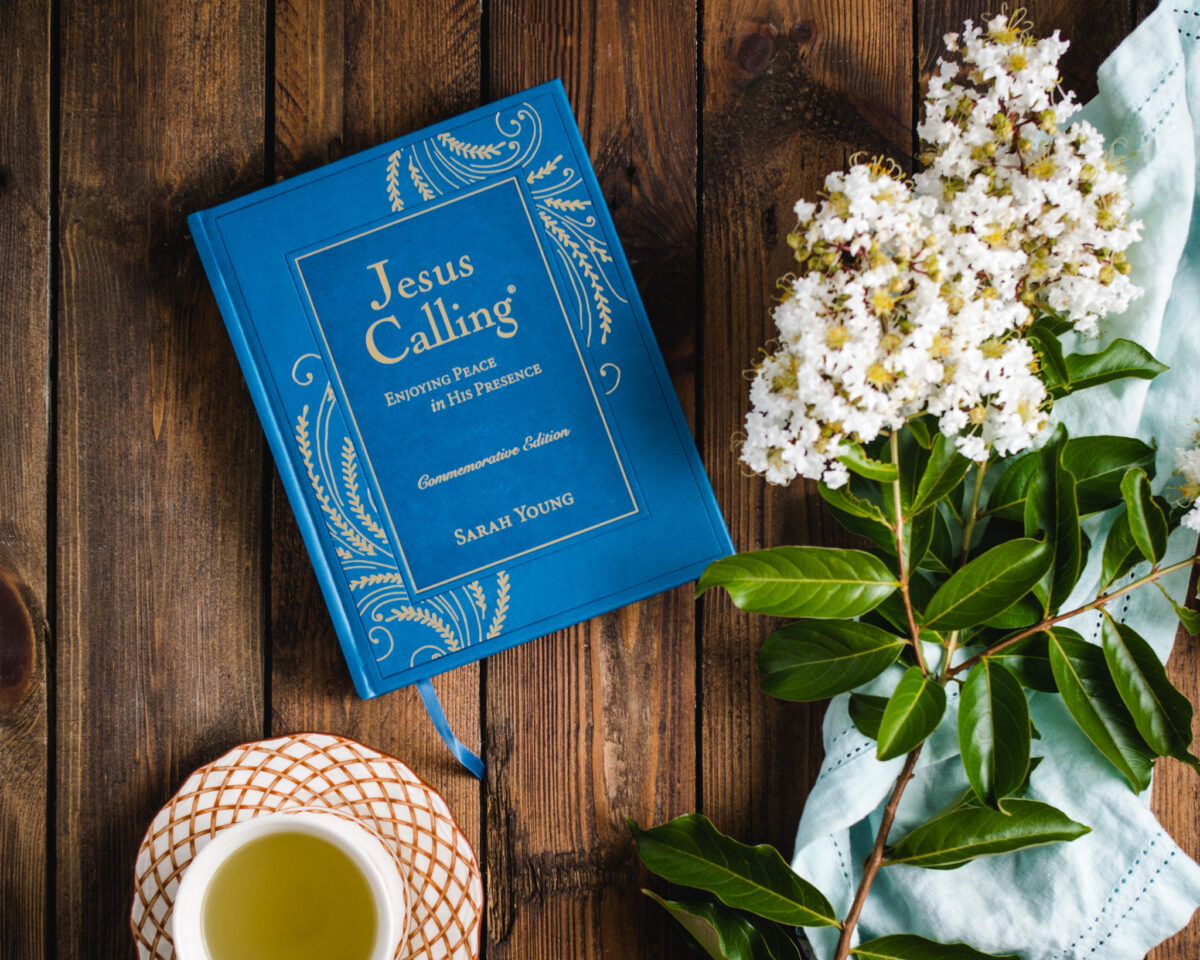
For over twenty years, readers have discovered the joy of spending time in the presence of the Savior with the much-loved daily devotions in Jesus Calling.
Now, in the Jesus Calling commemorative edition, you’ll feel comforted by words of hope and encouragement, and be reassured of Jesus’ unending love through author Sarah Young’s words of gentle guidance that are rooted in Scripture.
In this deluxe edition, you’ll find samples of Sarah’s original handwritten devotionals, twelve new devotions she penned before her passing, letters from Sarah to readers for each month of the year, and a touching tribute from Sarah’s daughter.
Experience a deeper relationship with Jesus as you savor the presence of the One who understands you perfectly and loves you forever. Find the Jesus Calling commemorative edition today at your favorite retailer or get 30% off your purchase at www.faithgateway.com.
Our next guest is foster and adoptive mom Cara Finger, who created the organization My Bag My Story, which provides duffels and backpacks to children in foster care so that they have a quality bag to hold their belongings in as they transition between homes—helping to create a sense of belonging, organization, and inner peace.
Cara Finger: My name is Cara Finger and I am from Nashville, Tennessee, and I started a ministry called My Bag My Story. And we give new, awesome, durable bags to children in foster care.
Cara’s Experience with Adoption
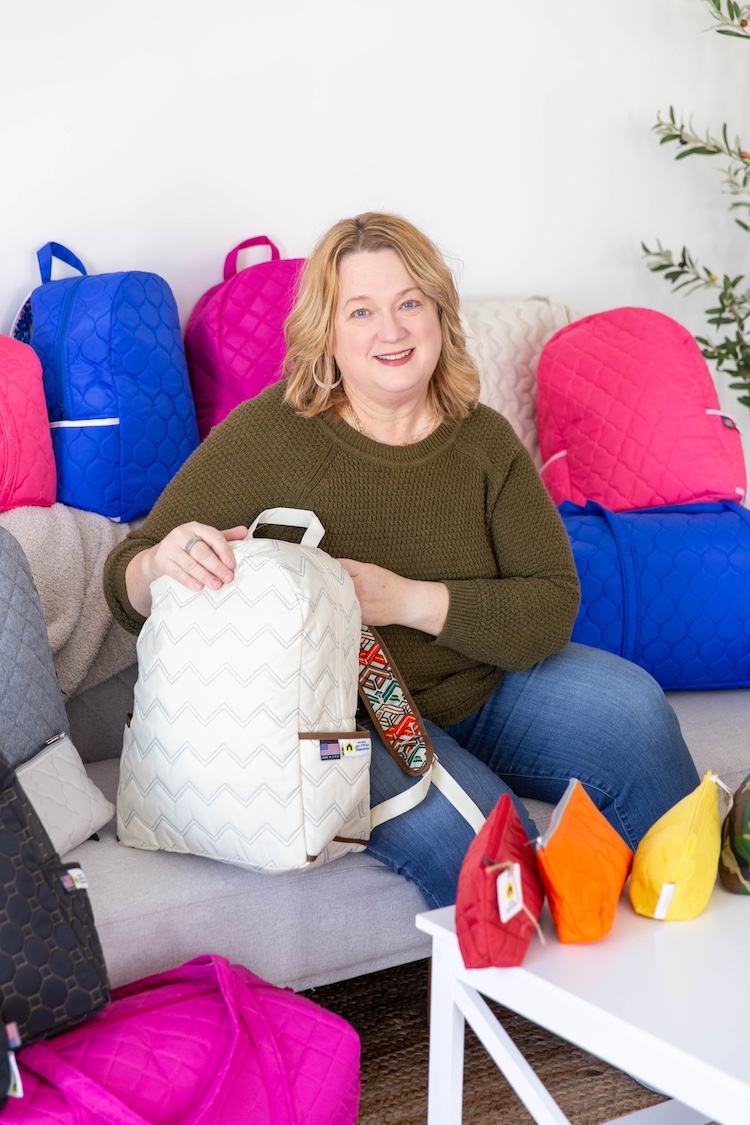
I grew up in Lubbock, Texas. I was adopted myself. And my brother was also adopted. We grew up in Lubbock, where my father was a college professor. I grew up with my parents always making me feel very special that I had been adopted. And so I grew up very aware that I was an adopted child and so was my brother. And so I knew that serving children somehow would always be part of our family’s DNA.
My husband and I have three children, two of them are adopted. Our first, our oldest daughter, is home grown, what we call biological. And then we adopted our second and third child. And we decided in 2018 to become foster parents because we saw a need and wanted to serve children in some way. And we felt that becoming foster parents would be a great route to serve children somehow.
Meeting a Need

When we adopted our daughter, paperwork was hugely extensive. To get together a dossier to adopt was about a two year process. And so then when we decided to adopt our son, we had some of the paperwork done, but of course, I had to renew it all and start over again. It was a very lengthy process, especially when you’re waiting on a child. [It was] between two and two and a half years for each one of them to bring them home.
When we became foster parents, every child that came to us came through our door carrying their belongings. We were handed either a grocery sack, a trash bag, or nothing carrying the children’s belongings, and it kept bothering me. We had teenagers come through our door and we had [children] as young as five and a half. And we never got a suitcase. We never got a bag. It was always either a grocery sack, a store sack, something that was easy to provide at the time, something that you can grab and throw your stuff in.
“When we became foster parents, every child that came to us came through our door carrying their belongings. We were handed either a grocery sack, a trash bag, or nothing carrying the children’s belongings, and it kept bothering me.” – Cara Finger
So I said to several friends that we had met in the foster care community, “Do your children come with a suitcase?” And they’re like, “No, carrying a trash bag is so common.” I was like, “That does not have to be common.” So I set out to figure out how to provide bags for children in foster care.
Something to Call Your Own
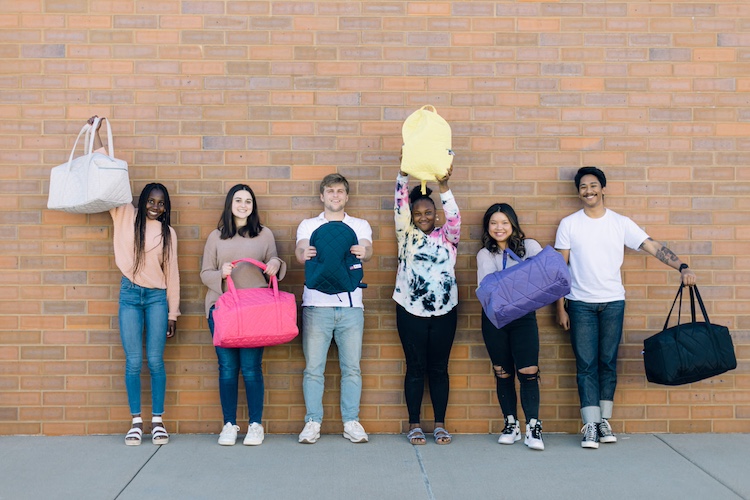
My Bag My Story was started simply because I just took the next step of providing bags for kids. I started a nonprofit that is a buy one, give one. So for every bag purchased, one is given to a child in foster care. And probably five or six months in, I met with a friend of mine who was part of the entrepreneurship program at the local university here, and they helped me file for our 501 C3, start a website. Some of the students helped us start doing pop ups around town, with local stores we would go into and set up shop.
The bigger part of My Bag My Story is advocating and bringing awareness to children in foster care, bringing awareness that this is an issue and it’s going on in every community, in every state. We really are trying to address a painful truth that many children in foster care face in that if you don’t have money for food and clothes and shoes and all the things, of course you’re not going to have a bag.
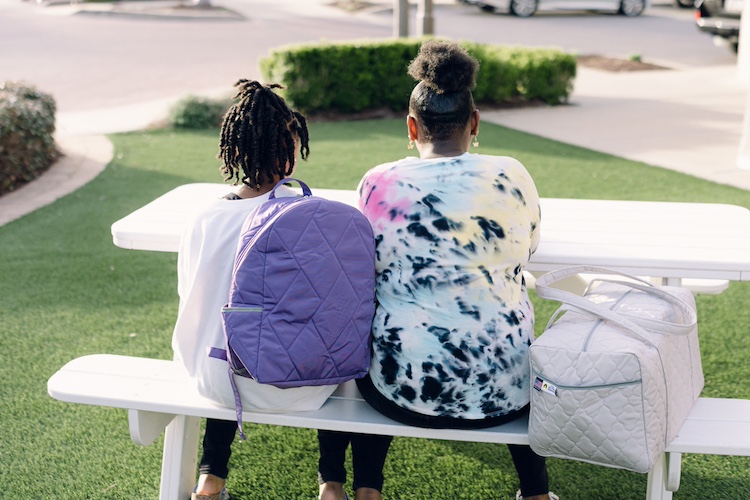
Having a bag to carry your stuff in, to carry your belongings in is so important. It is very, very important for kids. If you are made to leave your home in the middle of the day or in the middle of the night, how some of these kids do, it’s one simple thing that can make a child feel valued and seen.
“Having a bag to carry your stuff in, to carry your belongings in is so important. It is very, very important for kids. If you are made to leave your home in the middle of the day or in the middle of the night, how some of these kids do, it’s one simple thing that can make a child feel valued and seen.” – Cara Finger
A bag really, for me, became a symbol of giving these children something to call their own, something that they can store their stuff in, that they can carry their stuff in, that it doesn’t get mistaken for trash.
When we made these custom bags, they were made early on from recycled fabric that was going to go into a landfill that a gentleman kindly made for us. It’s very simple, but it’s very durable. It’s great colors and great patterns. We want to give kids what they need.
I had no idea when I started My Bag My Story the importance of having a choice for children in foster care, the importance of children getting a choice on, “Do you want a backpack or a duffel bag? Do you want a red one or a green one? Do you want a black one or a brown one?” Children in foster care don’t really ever get a choice, or not very often. And they’re always given used hand-me-downs for the most part. And as time went on and as we kept giving bags, I kept getting feedback that giving these children a choice and giving them a really nice bag—because kids would say, and they still do to this day all the time, “Are you sure I get to keep this?” Because when they’re given a nice quality bag versus a bag that you know might fall apart pretty easily, a cheaper bag, it just gives them a sense of belonging, a sense of calm, a sense of dignity.
Making an Impact
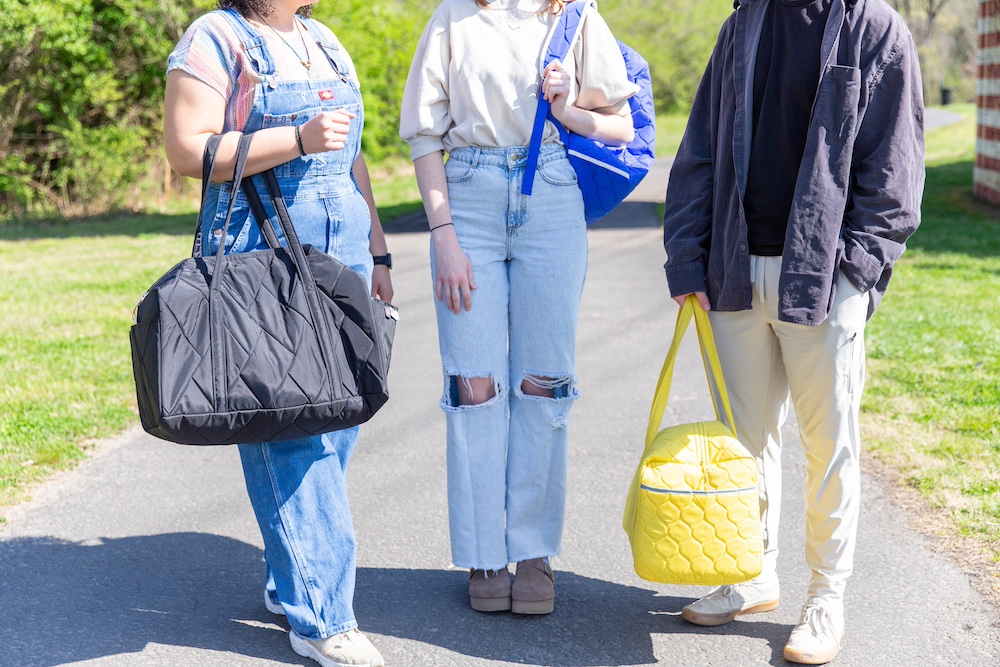
Early on when we started My Bag My Story, I was really wondering if it was making a difference. And a caseworker called me and said, “I’ve got to tell you a story.” And there was a young girl, young teenager that had come in, and she was very upset and had all her stuff in a trash bag. And she was like, “I just feel so out of control.” And so they said, “What can we do to help you?” And she said, “I don’t know, I don’t know.” And they said, “Why don’t we organize your stuff?” And she was still mad. They brought over one of our duffel bags and one of our backpacks because she had a significant amount of stuff, and she spent two hours in the corner folding up her clothes, putting them in the bags, and putting them in the backpack. And the social worker would check on her and she was like, “I’m not done yet. I’m not done yet.” So finally she said, “I’m finished. And I’ve got to tell you, I’m so calm, I’m so satisfied, I’m so organized finally.”
He made a call to me to tell me that because he said, “You don’t realize what this gave that precious girl. She had everything wadded up in a trash bag and was carrying it around and had no sense of calm. And your bag gave her that.” And so that was a little treasure for me to keep going, knowing that even though a bag seems really small, it makes a huge difference in a child’s dignity and their organization and feeling like they have something to call their own, to carry their belongings in.
“Even though a bag seems really small, it makes a huge difference in a child’s dignity and their organization and feeling like they have something to call their own, to carry their belongings in.” – Cara Finger
It has definitely not been without its trials, but the Lord continues to bless it and things keep continuing to work out, and we keep growing and serving more children, which is the direction we want to go in.
Giving Our Lives Away
It is very important to give our life away somehow. We were not meant to not live in community. Everybody needs everybody.
“It is very important to give our life away somehow. We were not meant to not live in community. Everybody needs everybody.” – Cara Finger
Prayer plays a pivotal role in my life for everything. And so to say that it played a pivotal role in me starting My Bag My Story, I really felt the Lord calling me to something that is so simple as giving a bag to children. If I did not connect with the Lord daily, I would have no direction.
I love, love, my Jesus Calling devotional. And it’s quick. That’s the great thing is if you spend a lot of time in prayer or in the Word, you still can add Jesus Calling into your quiet time because you always glean a bit of… I call it a wink from the Lord. It’s great to put in your backpack so you can carry it anywhere you go, so that when you do have a little bit of time, you can open it and always feel the presence of the Lord.
Some people are not called to be foster parents. But there is always something that you can do, whether it is enlisting your small group at church, enlisting your tennis team, any clubs, any groups that you’re in to make dinner for a foster family. They’re everywhere throughout your community, people that are fostering and doing the hard work of having children in their home. If you have a friend that’s a foster parent, bring them a cup of coffee, mow their grass, everyone can do something. Start a meal train, make a meal once a month for a family that’s fostering. There’s something that everyone can do.
Narrator: To learn more about Cara’s organization, please visit www.mybagmystory.com, and be sure to follow them on social media.
If you’d like to hear more stories about the rewards of caring for others, check out our interview with Evan Dougoud.
Next week: Scott Morrison
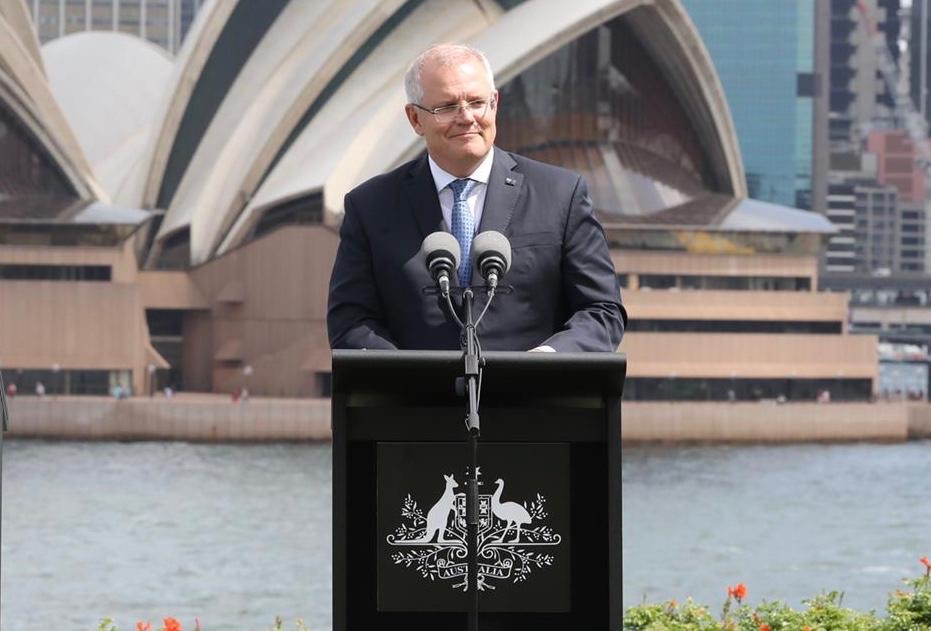
Next time on the Jesus Calling Podcast, we’ll hear from Scott Morrison, a former Prime Minister of Australia, who shares the challenges of navigating the country through tumultuous times, and how he relied on his faith to get through.
Scott Morrison: You’ll find His blessing in His presence, not in the success or certainly not in material things. I mean, that stuff happens, but so does tragedy. So do trials. So does suffering. And you find His blessing, amazingly, in those circumstances, too.


